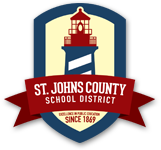Is everything on the web free? Unfortunately, no, but there are different rules that allow content to be used. To begin to understand copyright start with “The 10 Myths About Copyright Explained” by Brad Templeton.
Now that you have a fairly good idea about copyright myths check out the page that Cyberbee.com has created for students and teachers to learn more about copyright. Go to the interactive site.
Many times teachers and students will claim “Fair Use” in order to use some type of copyrighted work in support of our classroom lessons or projects. If you are concerned about fair-use and want to make sure you are not in violation of copyright the Copyright Management Center of Indiana University has a great web site that covers fair-use issues. Rather than reading the legal explanations of fair use this site answers questions like: What is Fair Use?, When do I need Fair Use?, Am I Within the Limits of Fair Use?, and Understanding and Applying Fair Use.
Another web site that provides good information on copyright is the United States Copyright Office. They answer burning questions like How do I protect my sighting of Elvis? No, really…. it’s listed on their Frequently Asked Questions page.
Read the article The Educator’s Guide to Copyright and Fair Use and then take their T/F quiz about copyright.
We’re not done yet! Now that you have a good idea of how to legally use copyrighted works we should review how to cite those works.
We have found two online tools that will assist in developing a proper citation. David Warlick of the Landmark Project created an online tool, Citationmachine.net, to assist in creating citations. Two of the most common formats are supported (MLA & APA).
In addition to the above reference the Oregon School Library Information System (OSLIS) has both a MLA citation maker and an APA citation maker. By answering questions about the source (print/electronic, online database/internet, etc.) the site begins to develop your citation in either format. The OSLIS has a wealth of information. Make sure you visit their Search Strategies page, Research Process page, and the Beyond Surfing page. These pages provide great information for teachers and students alike when developing internet search skills and strategies.


